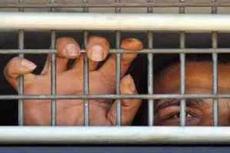Some suggested the arrests of 16 figures from the easter region and the accusations of espionage had been designed to distract a population eager for reform.
Financial Times
Saudi authorities have called in several influential Shia Muslim clerics and intellectuals for questioning, as last month’s arrest of 16 people on charges of spying for Iran threatens to raise tensions between leaders of the religious minority and the government in the oil-rich kingdom. 
Over the past days and weeks, the interior ministry has summoned scores of clerics and intellectuals from the towns of Ihsaa and Qatif in the oil-producing eastern province for interrogation, Saudi activists say.
The trigger for the summons was the Shia community’s angry reaction to last month’s arrest of 16 Saudi Shia, who are accused of providing information and documents to Iran, allegations that Iran denies. Their arrest had prompted a wave of anti-Shia rhetoric in the state media. Leading Shia thinkers had then published statements questioning the timing and motive for their detention.
Some suggested the arrests and the accusations of espionage had been designed to distract a population eager for reform.
“The dawn raids on the alleged spies and the summons have created an atmosphere of fear,” said one prominent Shia activist. “Even if the 16 people were spies, the entire community should not be held responsible for them.
“The statements were meant to defuse tension, but instead, the interior ministry started interrogating those who signed the statements, and ordered them to pledge not to issue similar statements.”
Among those summoned was Sheikh Hassan al-Saffar, an influential Shia cleric who led the sect’s political movement in exile before returning to Saudi Arabia in the 1990s after reconciliation with the late King Fahd. He was called to meet interior minister Prince Mohammed bin Naif in Riyadh after he delivered a sermon accusing the government of playing with the sectarian card to deflect focus off demands for reform. He was kept waiting for a week to meet the minister. Late last week, hundreds rallied in Qatif, denouncing “the disrespectful” treatment of the sheikh.
A security official and a member of his family denied the sheikh’s movement was restricted.
Sheikh al-Saffar’s sermon was important, not just because he raised doubts about the spying ring, but also because he struck an inclusive tone, calling on the government to protect the rights of all Saudis to fair trials and fairer distribution of the oil-rich kingdoms’ vast wealth.
“Many governments use issues like uncovering espionage network to distract their population away from priorities and to ignite sectarian divide once their people were united on pressing for reform,” he said in the sermon. “The days when the people were silent are over. They won’t accept any more to be kept in the dark with no participation in decision making, or real representation, fighting corruption, or holding prisoners without trial.”
The Shia in Saudi Arabia have long complained from marginalisation and prejudice, especially by the official Wahhabi religious establishment which describes them as heretics. The situation improved under King Abdullah, who started a national dialogue in 2003. But still there is no Shia in charge of senior ministerial or military positions. The government denies allegations that it discriminates against Shia.
Unlike previous rallies, which were fixated on Shia issues and figures, last Thursday’s protesters in support of Sheikh al-Saffar, also carried pictures of and demanded the release of imprisoned Sunni rights defenders, Mohamed Fahd al-Qahtani and Abdullah al-Hamed who were recently sentenced to prison.
“The government wanted to send a message to the sheikh (al-Saffar) that the way he styled his speech was not accepted,” said Waleed Sulais, a Qatif-based rights activist. “People are more aware of their rights because of the Arab spring, They realise that the government does not accept any different point of view, that it is not only about the Shia.”
After the Arab uprising, there were small but persistent protests in Qatif demanding more Shia rights and protesting against sending Saudi troops to Bahrain to help quell an anti-government uprising by the majority Shia population. The protests, which turned deadly sometimes, challenged the image of Saudi Arabia as the bulwark of stability amid a regional turmoil.